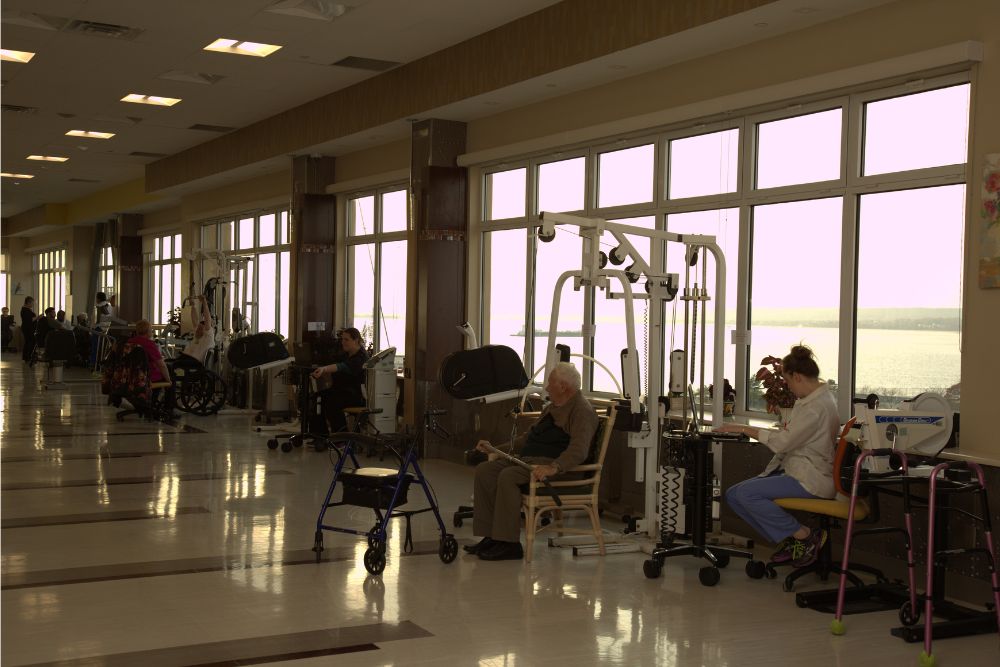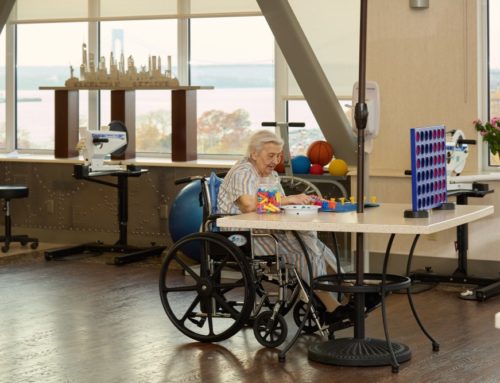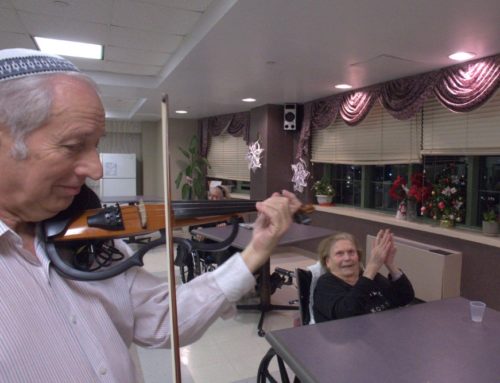Shoulder fractures affect those of all ages, from kids to seniors, making even the simplest tasks nearly impossible. Luckily, recovery from a broken shoulder doesn’t take as long as you may think. Of course, how quickly you’re back to normal depends on the severity of the injury, treatment, and overall health.
One vital aspect of recovery, especially for the elderly, is rehab therapies, including physical therapy for broken bones. When safe to do so, a trained therapist introduces gentle exercises. Over time, your strength and flexibility improve, giving you most or all of your abilities back. For more info on recovery after a shoulder injury, check out the following sections.

Broken Shoulder Recovery Time for Adults and Elderly
The shoulder consists of several pieces, including bones, joints, tendons, muscles, and ligaments. After a fall or accident, it could break in a few different ways, some more severe than others 1. Because of the various possible injuries, recovery time isn’t set, though it can be estimated, depending on the individual. Broken shoulder recovery time is often different for adult and seniors.
Adults
For minor injuries, adults usually regain the use of their shoulder within 4 to 6 weeks. More serious shoulder fractures could take 3 to 4 months or more, especially when surgery is required. Even after you’re cleared to move again, you’ll have limited strength and range of motion for several months. In fact, it could take several years to fully heal.
Elderly
The elderly don’t have it so easy since several factors can slow their broken shoulder recovery. These include health issues, including reduced immune functions, weakened bones, high blood pressure, heart disease, or medications 2. Due to these complications, recovery could take several months, though some seniors won’t fully heal. Depending on their overall health, extended stays in hospitals or rehab facilities may be required to improve their results.
What should you not do with a fractured shoulder?
After an injury, we tend to push ourselves to get back into our usual routine. Those recovering from a broken shoulder should avoid these instincts. Pushing yourself too hard often reduces healing or increases complications, preventing the area from healing.
For the first few months, avoid lifting anything heavy or raising your arm. If you work a physical job, ask for lighter duties or take time off. Though you may be allowed light sports after 6 weeks, don’t play contact sports until cleared by your doctor. Driving may also be off the table for several weeks, depending on the injury 3.
The fastest way to heal a broken shoulder?
Initial treatment for a shoulder injury is a sling or surgery, depending on the severity of the damage. After a few weeks, your doctor will likely recommend physical therapy. This rehab program reduces recovery time for broken shoulders 4.
Physical therapy includes exercises that strengthen the shoulder muscles to reduce pain and prevent further injury. It also increases your range of motion for better flexibility. Your therapist will customize the program to match your injury, age, and overall health for the best results.
Resources:
- Shoulder Trauma (Fractures and Dislocations) https://orthoinfo.aaos.org/
- Older people and traumatic injury https://www.aftertrauma.org/
- Information about shoulder fractures https://www.nhsggc.org.uk/
- Rotator cuff and shoulder conditioning program https://orthoinfo.aaos.org/
This content comprises informative and educational resources only and can not be considered as a substitute for professional health or medical guidance. Reliance on any information provided in this article is solely at your own risk. If you have any inquiries or apprehensions about your medical condition or health goals, talk with a licensed physician or healthcare provider.






Leave A Comment